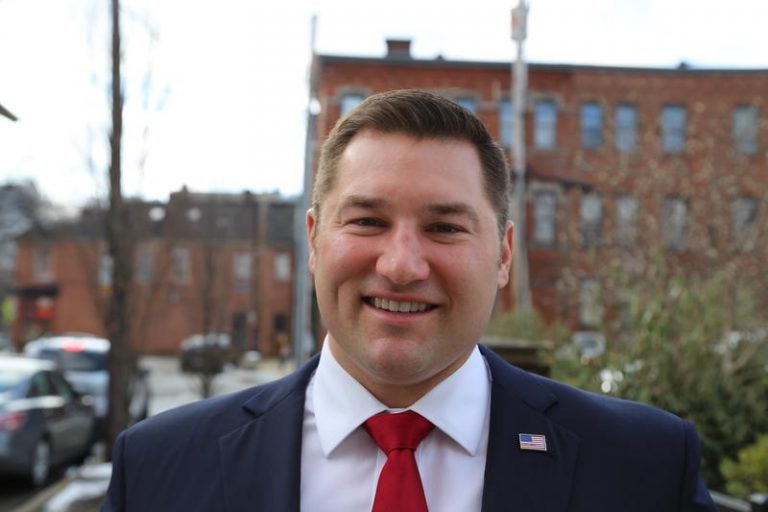Congress passes bill providing mental health resources for local law enforcement
Law-enforcement agencies across the country would be able to get funding for mental health resources, under legislation passed by Congress this week.

Rep. Guy Reschenthaler represents Pennsylvania's 14th Congressional district. (Sarah Kovash/90.5 WESA)
Law-enforcement agencies across the country would be able to get funding for mental health resources, under legislation passed by Congress this week. The U.S. House of Representatives unanimously approved a Senate bill that authorizes $7.5 million in federal grants each year for local law enforcement.
“We really need to do something to address the suicide rates and PTSD rates among law enforcement,” said U.S. Rep. Guy Reschenthaler, a Republican from southwestern Pennsylvania who previously introduced similar legislation in the House with Rep. Madeleine Dean, a Democrat from Philadelphia’s suburbs.
“Their jobs are tough, they live with a lot of stress,” he said. “I don’t think we can change the nature of police work, but with funding, we can help alleviate the issues caused by it, such as depression, thoughts of suicide, PTSD.”
“Every day, our law-enforcement professional don their uniforms, show up at work, and take on the extraordinary responsibility of keeping us safe,” Dean said in a statement. While there is no official system that tracks death by suicide among officers, Dean said the rate is 50 percent higher than the national average. The legislation, she said, “responds to a growing emergency in the law-enforcement community by providing critical funding for mental health support.”
The legislation, which is on its way to President Trump’s desk for signature, would provide annual funding through the Department of Justice for four years, beginning in 2020. There hasn’t been funding for the program since 2005.
“I think [$7.5 million] is a great start,” said Andy Edmiston, government affairs director for the National Association of Police Organizations, which endorsed the legislation. “But no, it’s not enough.”
Edmiston said she has heard from many rank-and-file officers in recent years who have asked for more funding for peer and clinical counseling services. In part, Edmiston attributed the spike in requests to an increase in mass shootings — particularly after a shooting at Sandy Hook Elementary in Newtown, Conn. that left more than two dozen dead, including 20 children.
“Officers have seen horrors,” she said. “One day they’re holding a kid who has been shot and died in their arms, and the next day they’re being shot at. Each officer has their own story to tell. … Someone should be able to hash out and walk through what they’ve seen.”
She said “the fact that our members are asking for [funding]” reflects an ongoing cultural shift within departments. “The profession is now more open to recognizing that the stress and strain of the job do impact an officer’s mental health. [In the past], it wasn’t something you talked about. As a cop, you shoved it all down.”
And Edmiston said there was still work to be done. The culture within some departments may make officers wary of seeking services for fear of losing their jobs, and she emphasized that mental health programs should “find clinicians who understand police work.”
“A lot of law enforcement officers don’t want to go in for mental-health treatment because there is a stigma around it,” Reschenthaler said.
The recently passed bill amends a law first enacted in 1968 to provide family support services, such as counseling and child care, for law enforcement. The new legislation specifically outlines support services for officers struggling with mental health issues.
“I think by explicitly saying this is for mental health such as suicide prevention, depression, anxiety, PTSD — that helps bring this out of the shadows,” Reschenthaler said.
WHYY is your source for fact-based, in-depth journalism and information. As a nonprofit organization, we rely on financial support from readers like you. Please give today.




